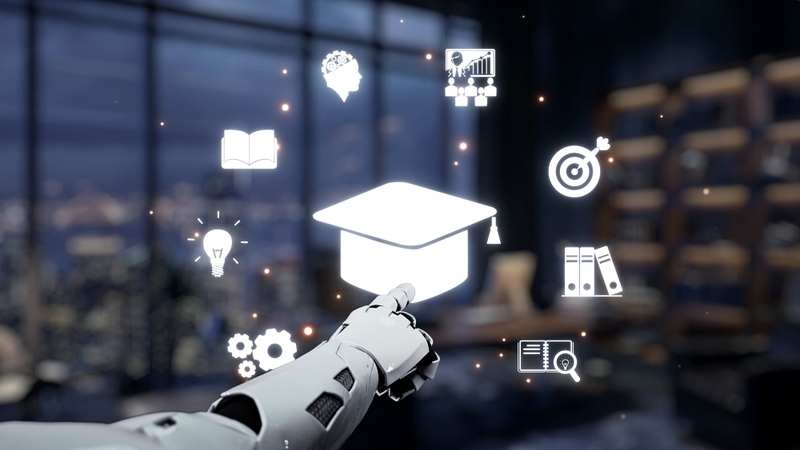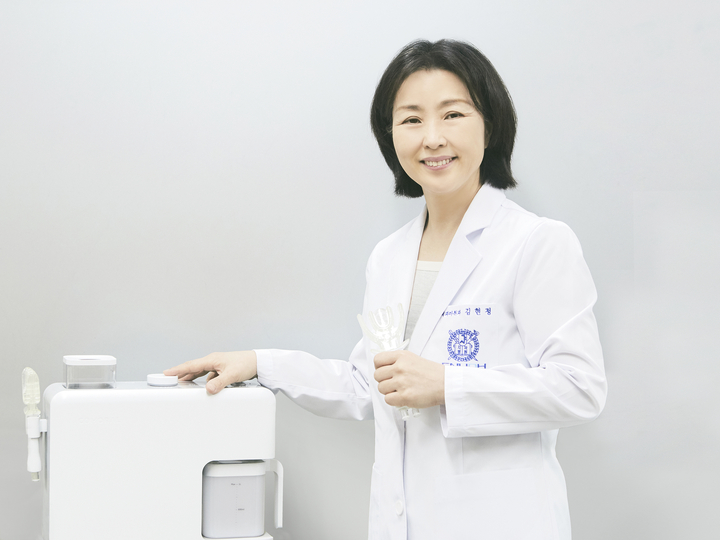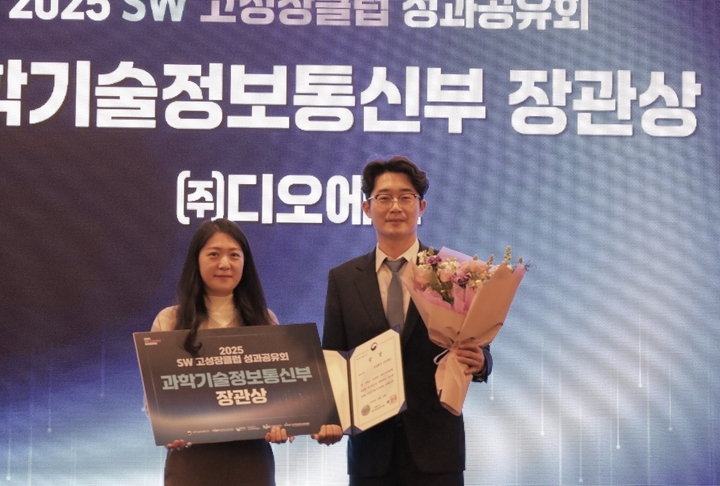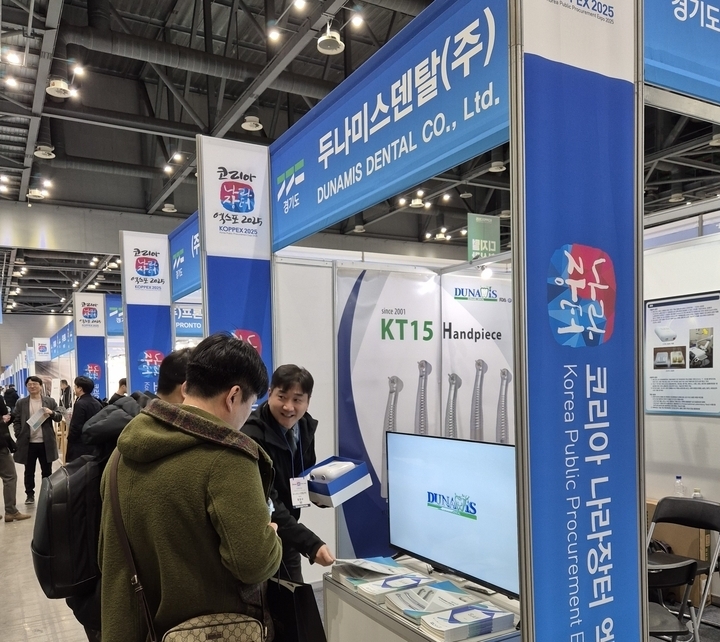【브레이크뉴스 대구】이성현 기자=DGIST(총장 이건우)는 로봇및기계전자공학과 장경인 교수(교원 창업기업 ‘엔사이드’ 대표 겸직)가 ‘NANO KOREA 2024’에서 연구혁신부문(우수 연구개발성과) ‘과학기술정보통신부 장관상’을 수상했다고 4일 밝혔다.

장경인 교수는 교원 창업기업인 ‘엔사이드’의 대표로, 로봇및기계전자공학과 오세혁 박사과정생, 제갈장환 석박사통합과정생과 함께 영장류의 자연 본능 행동 중 뇌신경 활성을 한 달 동안 무선으로 실시간 측정할 수 있는 ‘완전 매립형 무선 뇌신경 신호 기록기’를 개발했다.
연구팀은 이번 연구성과로 ‘의공학 분야의 학문과 산업 발전에 기여한 공로’를 인정받아 수상의 영예를 안았다.
장경인 교수는 내장 배터리 없이 무선으로 행동에 제약을 주지 않고 신호를 은밀하게 측정할 수 있는 ‘완전 매립형 무선 뇌신경 신호 기록기’를 개발했다.
해당 기술은 영장류의 자연 본능 행동 연구를 위한 공학적 플랫폼으로, 뇌 심부 영역의 뉴런 단위 신호를 측정하기 위한 3차원 다공성 전극 및 생분해성 셔틀을 활용한 신경 탐침 삽입 기술, 무선 동작을 위한 광범위 무선 전력 전송 및 무선 통신 기술, 그리고 인공지능 신호처리 기술을 접목한 융합 기술이다.
장경인 교수는 “기존의 ‘뇌신경 신호 수집 기술’은 활용 시 제약사항이 있어 설치류를 대상으로는 실험이 가능했으나, 실제 환자에게 임상 시험 시 성공률이 낮았다”며, “이번에 개발한 ‘완전 매립형 무선 뇌신경 신호 기록기’는 인간과 98% 이상 DNA가 일치하는 영장류의 전임상 시험 환경을 새롭게 제공함으로써 신약 개발 시 임상 진입의 성공 확률을 비약적으로 높일 수 있는 플랫폼 기술이다. 이를 통해 뇌와 행동 간의 관계 및 뇌신경 회로를 규명하는 뇌신경과학 분야와 난치성 뇌 질환(파킨슨, 알츠하이머 등) 치료를 위한 전자약 기술까지 확장할 수 있어 향후 사회적 가치를 창출할 것으로 기대하고 있다”고 밝혔다.
한편, DGIST 장경인 교수는 이번에 개발한 기술을 확장해 뇌신경 신호 측정을 통한 진단과 실시간 신호처리 및 광학적·약리학적·전기적 자극 기술을 통합한 전자약 기술을 개발할 계획이다.
향후 미국 하버드 대학 및 MIT와 전략적 파트너쉽을 통해 난치성 뇌 질환 환자를 대상으로 임상에 도전할 예정이다. 또한, 장경인 교수가 창업한 기업인 ‘엔사이드’는 세계 최초로 배터리 없는 뇌공학 기술의 임상 및 식약처 인허가를 통해 첨단 바이오산업을 선도하고자 한다.
<구글 번역으로 번역한 영문 기사의 전문 입니다. 번역에 오류가 있을 수 있음을 밝힙니다.>
DGIST Professor Kyung-in Jang received the Minister of Science and ICT Award
At DGIST (President Lee Kun-woo), Professor Kyung-in Jang of the Department of Robotics and Mechatronics (who also serves as CEO of the faculty start-up company 'Nside') won the 'Minister of Science and ICT Award' in the research innovation category (outstanding research and development performance) at 'NANO KOREA 2024'. It was announced on the 4th that it was done.
Professor Kyeong-in Jang is the CEO of 'Nside', a faculty start-up company, and together with Se-hyuk Oh, a doctoral student in the Department of Robotics and Mechatronics, and Jang-hwan Jegal, a combined master's and doctoral student, are developing a wireless, real-time measurement of brain nerve activity during the natural instinctive behavior of primates for a month. A ‘completely embedded wireless cranial nerve signal recorder’ has been developed.
The research team was honored with an award in recognition of its ‘contribution to academic and industrial development in the field of biomedical engineering’ for its research results.
Professor Kyung-in Jang developed a ‘fully embedded wireless cranial nerve signal recorder’ that can secretly measure signals wirelessly without a built-in battery and without restricting behavior.
The technology is an engineering platform for studying the natural instinctive behavior of primates, including a neural probe insertion technology using 3D porous electrodes and biodegradable shuttles to measure neuron unit signals in deep brain areas, and wide-range wireless power transmission for wireless operation. It is a convergence technology that combines wireless communication technology, and artificial intelligence signal processing technology.
Professor Kyung-in Jang said, “The existing ‘cranial nerve signal collection technology’ had limitations when used, so it was possible to experiment on rodents, but the success rate was low when clinically tested on actual patients.” He added, “The ‘completely embedded wireless’ developed this time was The ‘Cranial Nerve Signal Recorder’ is a platform technology that can dramatically increase the probability of success in clinical entry when developing new drugs by providing a new preclinical testing environment for primates whose DNA is more than 98% identical to that of humans. “Through this, we expect to create social value in the future by expanding the field of brain neuroscience, which investigates the relationship between brain and behavior and cranial nerve circuits, to electropharmaceutical technology for treating incurable brain diseases (Parkinson, Alzheimer’s, etc.).” .
Meanwhile, DGIST Professor Kyung-in Jang plans to expand the technology developed this time to develop electropharmaceutical technology that integrates diagnosis through measurement of cranial nerve signals, real-time signal processing, and optical, pharmacological, and electrical stimulation technologies.
In the future, we plan to conduct clinical trials targeting patients with incurable brain diseases through strategic partnerships with Harvard University and MIT in the United States. In addition, ‘Nside’, a company founded by Professor Jang Kyung-in, seeks to lead the cutting-edge bio industry through clinical trials and Ministry of Food and Drug Safety approval for the world’s first battery-free brain engineering technology.







![한국어 뉘앙스 알아듣고, 현장 문제 대화로 해결…베일 벗은 국가대표 AI 모델 [팩플]](https://pds.joongang.co.kr/news/component/htmlphoto_mmdata/202512/30/64a0f49c-616d-48a8-8ed3-dc4f24ceb39c.jpg)

